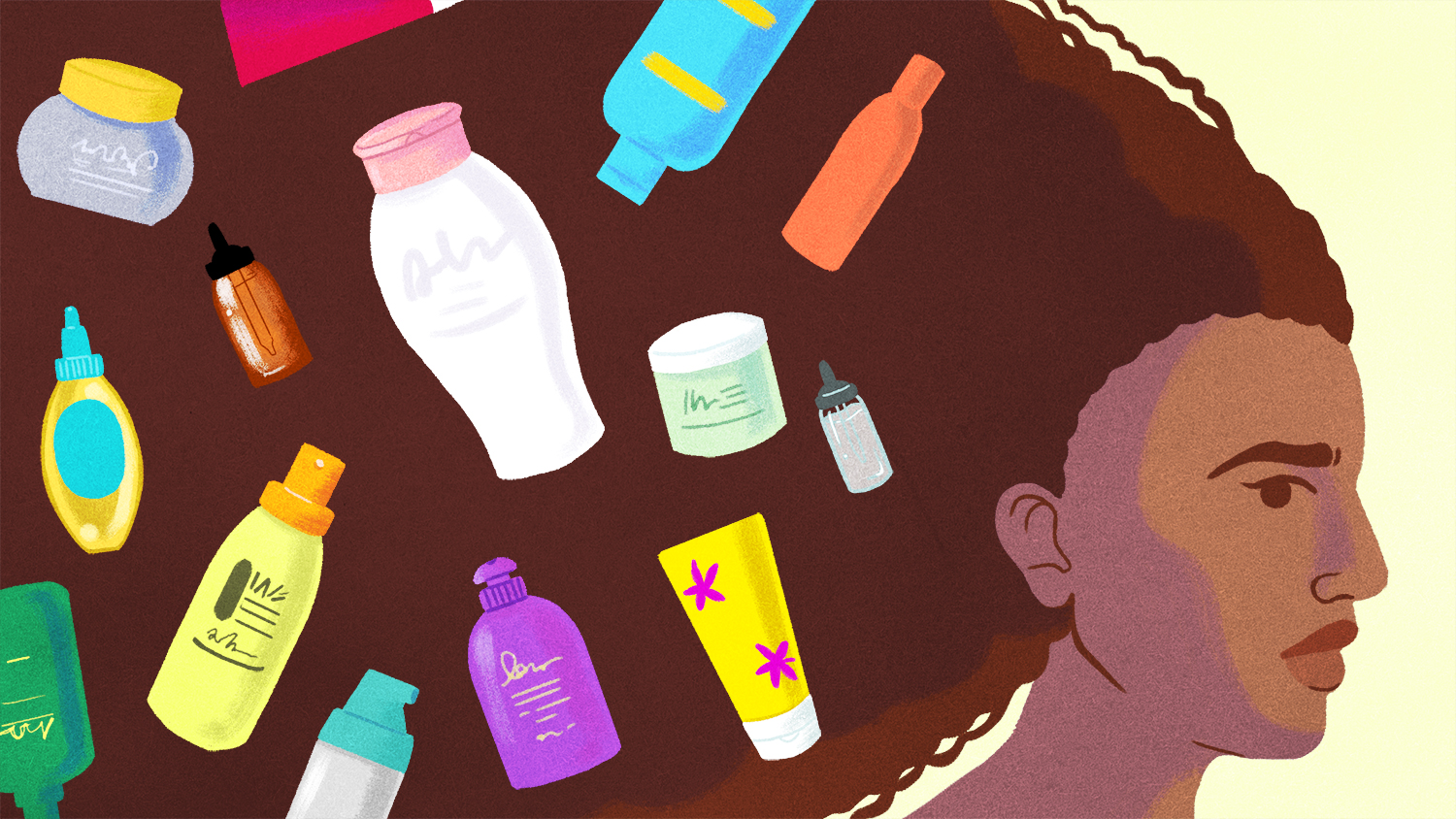It’s been more than four years since I ended my lifelong reliance on relaxers (better known as perms) and chopped off my then shoulder-length hair. What fueled this lifestyle change, besides a resentment of damaging hair chemicals, was a need for financial freedom from exorbitant salon fees. After leaving that world behind, however, I found myself in desperate need of products that would do justice to my newfound natural texture.
The goal at the time was simply to go back to basics — to strip down my product collection and escape the vicious cycle of chemical dependency. My search for natural products is now a life sentence of wandering from the far reaches of the internet to the aisles of Whole Foods, all in the name of treating my hair — and my body — better.
Exiling myself from the land of sulfates and silicones created a whole new challenge: shopping for sustainable beauty products. It’s hard enough for any green consumer to find trusted brands in the haystack of options. But for a black woman with thick, coarse hair and thin patience levels, the past four years have been an existential crisis of trial-and-error filled with infinite hours of poring over articles and devouring YouTube tutorials.
[grist-related-series]
Thankfully, the latter has become my go-to source for coping with the frustrations of product shopping as a black woman. Skeptical of online product testimonials, I cautiously sought out recommendations through YouTube’s black natural hair community, via users like Naptural85 and HairCrush.
YouTube turned out to be a safe space for virtually bonding with women of color who had beautifully complex textures and dilemmas like mine. This community became an educational depot, as well as a source for effective DIY hair solutions. I successfully auditioned a homemade conditioner with mayonnaise, honey, and eggs to moisturize my hair, and discovered coconut oil through black women before it hit the whitewashed mainstream.
The search for non-homemade products, however, has been much more hellish, with agitation usually beginning in the aisles. Simply figuring out which beauty products actually are natural and/or organic is infuriating, since the FDA doesn’t regulate the cosmetic world nearly as aggressively as it does the food industry. The search for toxin-free products that also work for black hair results in a time-consuming and expensive headache. (This being said, I can barely imagine the challenges of black women trying to go chemical-free in, say, rural Ohio as opposed to New York.)
To that end, I’ve spent hours deciphering ingredient labels, looking for seals of approval in hopes of avoiding harmful ingredients. In New York’s Targets, Duane Reades, and the like — which have separate sections for hair products designed for black hair and all its rich textures — the truly natural products are inevitably scattered in with the not-so-natural, which makes organic beauty shopping a regular crapshoot.
In my hunt for worthy products, Whole Foods has proven to be the most efficient destination because each store has multiple aisles full of exclusively organic brands. The company also has clear-cut standards that require specific certifications from beauty brands. Granted, the standards are somewhat of a consolation prize, because given the FDA’s lack of regulation, there’s little consumers can do to officially verify ingredients. But how does one even choose the right go-to products?
From my YouTube-curated trials, I tried everything from Giovanni shampoos and conditioners to Aubrey Organics (now a favorite). I discovered Trader Joe’s reliable Tea Tree shampoo and conditioner and became a disciple of SheaMoisture. The first time I put mud in my hair was based on a recommendation from YouTube. Terressentials Mud Wash was the first and only hair product I found that was 100 percent USDA Certified Organic. The mud cleanses incredibly as a combined shampoo and conditioner. Rather than adding layers of synthetic ingredients, the mud properties cleanse the hair and promote your hair’s natural oils.
My biggest takeaway from this years-long expedition is a disclaimer for hair product buffs: Not everything will work for you. As cliché as that sounds, it’s important to keep in mind throughout the journey, especially when taking into account the vast range of curl patterns among black women — not to mention, the vast range of patterns on one head of hair alone.
Still, the online community is as good a consult as any beautician (with discretion, of course) and crowd-sourcing can be a valuable resource. Your beauty routine is only as good as your options — and sometimes, you need a helping hand just to find them.


